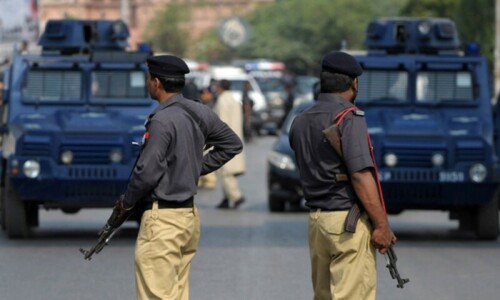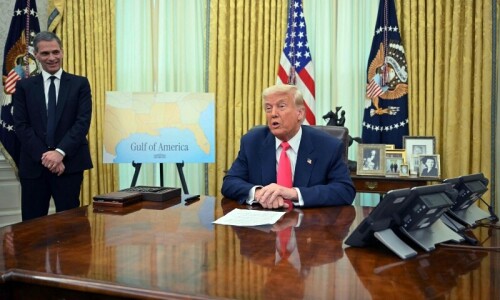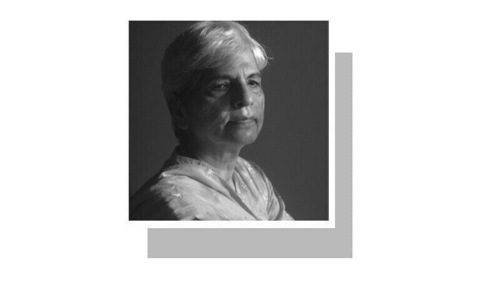
ISLAMABAD: Even though he was considered a hard-working and undemanding cabinet minister, this is not the first time that Zahid Hamid has lost a cabinet portfolio.
From drafting the National Reconciliation Ordinance to being the alleged author of the order imposing a state of emergency in the country on Nov 3, 2007, Mr Hamid’s career has seen many ups and downs in the recent past.
Also read: Protesters attack Law Minister Zahid Hamid's residence in Sialkot
He was also the law minister in Gen Pervez Musharraf’s cabinet, but relinquished that portfolio and became minister for privatisation just before the imposition of emergency.
As one of the expert lawgivers of recent times, it is believed that Mr Hamid had a hand in a large chunk of all legislation passed by parliament over the past decade or so.
Mr Hamid comes from a distinguished family; his father retired Brig Hamid Khan was himself a two-time MNA — once in the Pakistan Peoples Party government of 1977 and again in 1985 on a non-party basis.
Hailing from Pasrur in Narowal district, this is his third consecutive term in the National Assembly. His only electoral defeat came in his debut outing, when he was campaigning on a PPP ticket back in 1997.
Between 2002 and 2007, he won the general elections on a PML-Q ticket and served as one of the key ministers. He held the portfolio of law minister until 2007 and was actively involved in advising the military ruler.
He was very active in the PML-N’s opposition from 2008 to 2013 as he actively represented the PML-N in the National Assembly’s Standing Committee on Law and Justice.
His brother, Shahid Hamid, served as governor of Punjab under the PML-N from 1997 to 1999, and was instrumental in Zahid’s switch to the Pakistan Muslim League-Nawaz (PML-N) in 2008. Incidentally, Shahid Hamid also represented Maryam Nawaz Sharif in the Panama Papers case.
After establishing its government in June 2013, the PML-N inducted Mr Hamid as law minister. However, when a high treason case was filed against Gen Musharraf before the Supreme Court, Advocate Ahsanuddin Sheikh moved a petition seeking Mr Hamid’s removal from the cabinet on the grounds that he was minister in charge when the Provisional Constitution Order (PCO) and the fresh oath of office for judges had been issued under the military regime.
Advocate Ahsanuddin, who later joined the political party of retired Justice Iftikhar Moammad Chaudhry, alleged in a petition before the Supreme Court in June 2013 that Mr Hamid was one of Musharraf’s collaborators and abettors in the imposition of the Nov 3, 2007 emergency.
Subsequently, Mr Hamid was reshuffled and assigned the portfolio of minister for science and technology once the PML-N government decided to press on with the former dictator’s trial under Article 6 of the Constitution.
Later, Gen Musharraf filed a petition before the special court hearing the treason case claiming that Mr Hamid, former prime minister Shaukat Aziz and former chief justice Abdul Hameed Dogar abetted him in imposing emergency and requested that they should also be implicated as accused persons.
It was a surprise for Mr Hamid that the court allowed the petition and ordered the Federal Investigation Agency to examine his and others’ role in the actions of Nov 3, 2007.
He had challenged the special court verdict which ordered the government to include him as one of the abettors in the treason case, and not only distanced himself from the action itself, but also alleged that Musharraf was solely responsible for imposing the state of emergency.
Published in Dawn, November 28th, 2017













































